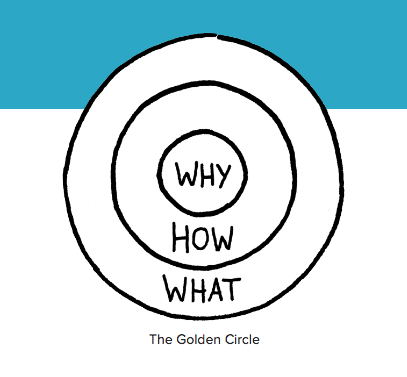Have you ever asked a teenage girl what qualities she wants in a husband?
I have. And the list is…curious.
“I mean obviously, he has to be taller than me. And he needs to be into the same stuff as me because like if he’s not it’ll be a problem. He has to like Talenti (Sea Salt Caramel, duh) and our first date will be at Smith’s House, but he has to bring flowers.”
20 years later and she’s married to a short guy who hates ice cream and can’t get his ass off the couch on Sundays because, football. And her list is in the trash.
You’d think that was sad based on how I wrote that paragraph except this teenager’s marriage is actually wonderful. Turns out, she loves football and her ass is right there with his on that couch.
Lesson: It’s really dumb to ask a teenager what she wants in a husband.
Because when you’re a teenager, you don’t know what you want. You’ve dated like 3 people (and that’s a lot). You have no idea who you are, what you need, or what a healthy relationship looks like.
The same is true for business.
Until you’ve been in business for more than a few years, you have no idea what your business is, what it stands for, and what success looks like.
Which is why asking someone to “start with why” is is like asking a teenager what qualities their dream husband will have.
Why You Shouldn’t Start With Why
Quick refresher: “Start With Why” is the powerful little edict that decries, “People don’t buy what you do; they buy why you do it.”
Simon Sinek coined it during his 2009 TED talk and then followed it up with a bestselling book after the talk went viral. The philosophy set the business world ablaze with people asking themselves, “What is my why?!” in their attempts to stand out in a crowded market.
Knowing your why is a valid and useful branding exercise.
It’s not the problem. It’s asking people to start with this exercise that’s the problem.
Going back to my teenager metaphor: Teenage girls spend a lot of time dreaming of hypotheticals. In fact, based on my analysis, they spend 79% of their time in this state.
The other 21% is spent discussing, debating, and deliberating over said hypotheticals.
Will he ask me out? Will he ask me out this way? What if he does it that way? How will I respond? What if I’m wearing THIS SHIRT?!
Sure, yeah, roll your eyes, but you’re doing it too if you’re starting with why.
Starting with why causes entrepreneurs to go into daydream mode. Thinking, journaling, wondering. Which is all fine-and-dandy until it leads to pontificating, panic, and paralytic anxiety.

Here’s a kitty to ease the anxiety.
If I had a dollar for every one of you who’s emailed me about your existential crisis brought on by this damn exercise, I wouldn’t need to be in business anymore.
“I can’t move forward because I don’t know my why!!” See the problem? When you don’t know your why, you feel stuck. And because the instructions are to start with it, “starting with why” becomes a convenient excuse for inaction.
And like the teenager who thinks she can dream up her perfect husband, you think you can dream up the “perfect why” that will lead to your “perfect business.”
False.
You can have a perfectly profitable and healthy business without a clear and strong why. (I know, I know. Sacrilege. But hear me out.)
“Starting with why” is a helpful framework for branding, not business.
A brand is the set of impressions someone has about you in their mind. As the old adage goes, “When you leave a room, what do people say about you? That’s your brand.”
A brand is arrived at by two things:
- What you tell people about who you are. This is what you pay agencies to do and what we call “Brand Foundation” or “Voice” or “Visual Assets” or “Style Guide” or “Core Values.” And you pay a pretty penny for these things.
- Peoples’ subjective experience with you. This part you can’t really control. Branding experts (not me) will tell you you can, but you can’t.
When you start a business, it’s really really really stupid to start with #1. Which is what most businesses do but they don’t realize that’s what they’re doing because it sounds like this: “I need a logo! And I can’t start until my business has a website with that logo.”
ummmmmm
Yeah, no. You don’t need a logo.
It’s like dessert after dinner. You gotta eat your damn green beans first.

Green beans are a metaphor for your business. Dessert is the logo. KEEP UP. Image Credit Southern Plate
You can have a logo after you’ve sold a few things. (To real customers you don’t know. Friends and family DO NOT COUNT.)
Otherwise, you’re just like everyone else on the internet: gorgeous website, but still living at home in the basement because you can’t make ends meet.
You cannot start with branding until you have a real business.
Because branding requires that you know who you are, what you sell, what you stand for, and who it’s for. And like the teenager dreaming up her ideal husband, you don’t have the answer to these things until you’ve been in the game for a few years.
You don’t have the answer to these things until you’ve been in the game for a few years.
It’s only through being in business that you discover who you are as a business. Or put another way: YOUR FREAKING WHY.
One More Thing Before I Let You Go
I know a guy who makes $600k a year shoveling driveways in the suburbs. It’s not sexy, but it’s a good business. Like all good businesses, he’s solving a real problem.

No one enjoys this. Image Credit: Travelers
His why?
“I need money. This seems like a good way to make some.”
Stop judging him.
That’s not a bad why. You don’t know if he is an egotistical asshole or if his daughter has leukemia and the hospital costs alone eat into all his profits. You also have no clue if $600k is revenue or profit.
STOP JUDGING THE WHY’S.
This is what trips us up and gives us the analysis paralysis we discussed above. You believe your “why” has to be profound.
Your why doesn’t have to be profound.
“I need money to XYZ” is a good a why as “we care about the environment” or “I want to change the world.”
[Sidebar: “I want to change the world” is as selfish as any other desire btw. It’s super self-involved since it’s about what you want. And it doesn’t imply that that change is good.
AIDS changed the world. So did cigarettes and polio and war.
Be specific in your why’s dammit!
/rant]
The point: your simple desire to rise above your circumstances, be a better mom, and make a little more money is “why” enough to keep you going.
Simple “whys” are often the real ones.
Start With A Business, Not a Why
Starting with why has become a convenient excuse for inaction.

You’re doing this instead of SELLING.
This obsession with knowing exactly who you are and what you’re about when you first start out is what’s keeping people from jumping into the arena. Which ironically is where the answers are.
So if you’re less than 2 years into your business (or if you’re 5+ years in but you’ve pivoted every year) then yeah DON’T start with why.
Start with having a business.
A real one.
Not a website with your logo and mission to “change the world.”
Start with making something people want and will pay for.
(Your business why comes later, when you’re ready to start with branding.)





